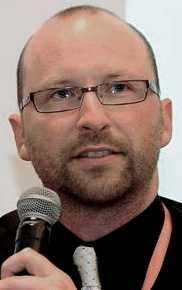

 I don't know about you, but I am angry. I am angry with the state of the world and our incapacity to do something about it. I am angrier because, in all this, I thought that the Internet would be the place where we would see collective action at its best. But, that's not going to happen. At least, anytime soon. Is it time to admit that the Internet has turned toxic? No. But, it is time to ask ourselves the question...
I don't know about you, but I am angry. I am angry with the state of the world and our incapacity to do something about it. I am angrier because, in all this, I thought that the Internet would be the place where we would see collective action at its best. But, that's not going to happen. At least, anytime soon. Is it time to admit that the Internet has turned toxic? No. But, it is time to ask ourselves the question...
 As more people get online every day, Internet Freedom is facing a global decline for the 7th year in a row. Today, Freedom House released their 2017 Freedom on the Net report, one of the most comprehensive assessments of countries' performance regarding online freedoms. The Internet Society is one of the supporters of this report. We think it brings solid and needed evidence-based data in an area that fundamentally impacts user trust.
As more people get online every day, Internet Freedom is facing a global decline for the 7th year in a row. Today, Freedom House released their 2017 Freedom on the Net report, one of the most comprehensive assessments of countries' performance regarding online freedoms. The Internet Society is one of the supporters of this report. We think it brings solid and needed evidence-based data in an area that fundamentally impacts user trust.
 At the outset of the Internet Engineering Task Force (IETF) 100th meeting, a decidedly non-technical initial "Guide for human rights protocol considerations" was just published. Although the IETF has always remained true to its DARPA origins as a tool for developing disruptive new technical ideas, it launches into bizarre territory when dealing with non-technical matters.
At the outset of the Internet Engineering Task Force (IETF) 100th meeting, a decidedly non-technical initial "Guide for human rights protocol considerations" was just published. Although the IETF has always remained true to its DARPA origins as a tool for developing disruptive new technical ideas, it launches into bizarre territory when dealing with non-technical matters.
 I've written several posts on Cuba's user-deployed street networks (SNET), the largest of which is SNET in Havana. (SNET was originally built by the gaming community, but the range of services has grown substantially). My posts and journalist's accounts like this one describe SNET, but a new paper presents SNET measurement data as well as descriptive material.
I've written several posts on Cuba's user-deployed street networks (SNET), the largest of which is SNET in Havana. (SNET was originally built by the gaming community, but the range of services has grown substantially). My posts and journalist's accounts like this one describe SNET, but a new paper presents SNET measurement data as well as descriptive material.
Confronted with the rapid development of the Internet, the traditional network is facing severe challenges. Therefore, it is imperative to accelerate the construction of global network infrastructure and build a new generation of Internet infrastructure to adapt to the Internet of Everything and the intelligent society. From November 28 to 30, 2017, "GNTC 2017 Global Network Technology Conference" organized by BII Group and CFIEC, will see a grand opening in Beijing.
 The world has officially entered what the MLi Group labels as the "New Era of The Unprecedented". In this new era, traditional cyber security strategies are failing on daily basis, political and terrorist destruction-motivated cyber attacks are on the rise threatening "Survivability", and local political events unfold to impact the world overnight and forever. Decision makers know they cannot continue doing the same old stuff, but don't know what else to do next or differently that would be effective.
The world has officially entered what the MLi Group labels as the "New Era of The Unprecedented". In this new era, traditional cyber security strategies are failing on daily basis, political and terrorist destruction-motivated cyber attacks are on the rise threatening "Survivability", and local political events unfold to impact the world overnight and forever. Decision makers know they cannot continue doing the same old stuff, but don't know what else to do next or differently that would be effective.
 U.S. federal court issues preliminary injunction, holding that enforcement of Canadian order requiring Google to remove search results would run afoul of the Communications Decency Act... Canadian company Equustek prevailed in litigation in Canada against rival Datalink on claims relating to trade secret misappropriation and unfair competition. After the litigation, Equustek asked Google to remove Datalink search results worldwide. Google initially refused altogether...
U.S. federal court issues preliminary injunction, holding that enforcement of Canadian order requiring Google to remove search results would run afoul of the Communications Decency Act... Canadian company Equustek prevailed in litigation in Canada against rival Datalink on claims relating to trade secret misappropriation and unfair competition. After the litigation, Equustek asked Google to remove Datalink search results worldwide. Google initially refused altogether...
 Are you passionate about preserving the global, open Internet? Do you have experience in Internet standards, development or public policy? If so, please consider applying for one of the open seats on the Internet Society Board of Trustees. The Internet Society serves a pivotal role in the world as a leader on Internet policy, technical, economic, and social matters, and as the organizational home of the Internet Engineering Task Force (IETF).
Are you passionate about preserving the global, open Internet? Do you have experience in Internet standards, development or public policy? If so, please consider applying for one of the open seats on the Internet Society Board of Trustees. The Internet Society serves a pivotal role in the world as a leader on Internet policy, technical, economic, and social matters, and as the organizational home of the Internet Engineering Task Force (IETF).
 Finally, Guyanese Internet users at all levels who are interested in internet governance issues and policy-making now have a local organization to address their interest. The Internet Society, a leading advocate for the open development, evolution, and use of the Internet for everyone, announced on October 10, 2017, at the official launch of the Internet Society Guyana Chapter that they were happy to finally have Guyana onboard.
Finally, Guyanese Internet users at all levels who are interested in internet governance issues and policy-making now have a local organization to address their interest. The Internet Society, a leading advocate for the open development, evolution, and use of the Internet for everyone, announced on October 10, 2017, at the official launch of the Internet Society Guyana Chapter that they were happy to finally have Guyana onboard.
 On the 25th of September, the northern autonomous region of Iraq known as Kurdistan voted to become an independent country. This vote has led to a current standoff between the central Iraqi government and the Kurdish Regional Government (KRG), with the Kurds threatening to cut off internet service into Iraq in retaliation for any punitive measures inflicted by Baghdad on the KRG. The following analysis was written by Doug Madory of Oracle Dyn after ISIS took control of Mosul, Iraq in 2014. It describes how the internet of Iraq came to be dependent on international connections through telecoms based in Kurdistan.
On the 25th of September, the northern autonomous region of Iraq known as Kurdistan voted to become an independent country. This vote has led to a current standoff between the central Iraqi government and the Kurdish Regional Government (KRG), with the Kurds threatening to cut off internet service into Iraq in retaliation for any punitive measures inflicted by Baghdad on the KRG. The following analysis was written by Doug Madory of Oracle Dyn after ISIS took control of Mosul, Iraq in 2014. It describes how the internet of Iraq came to be dependent on international connections through telecoms based in Kurdistan.